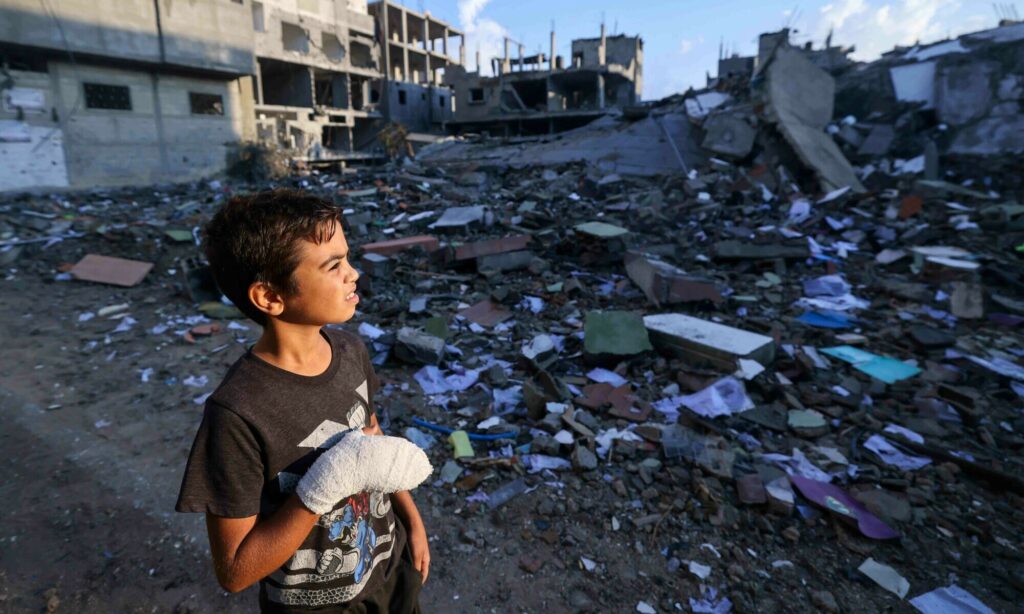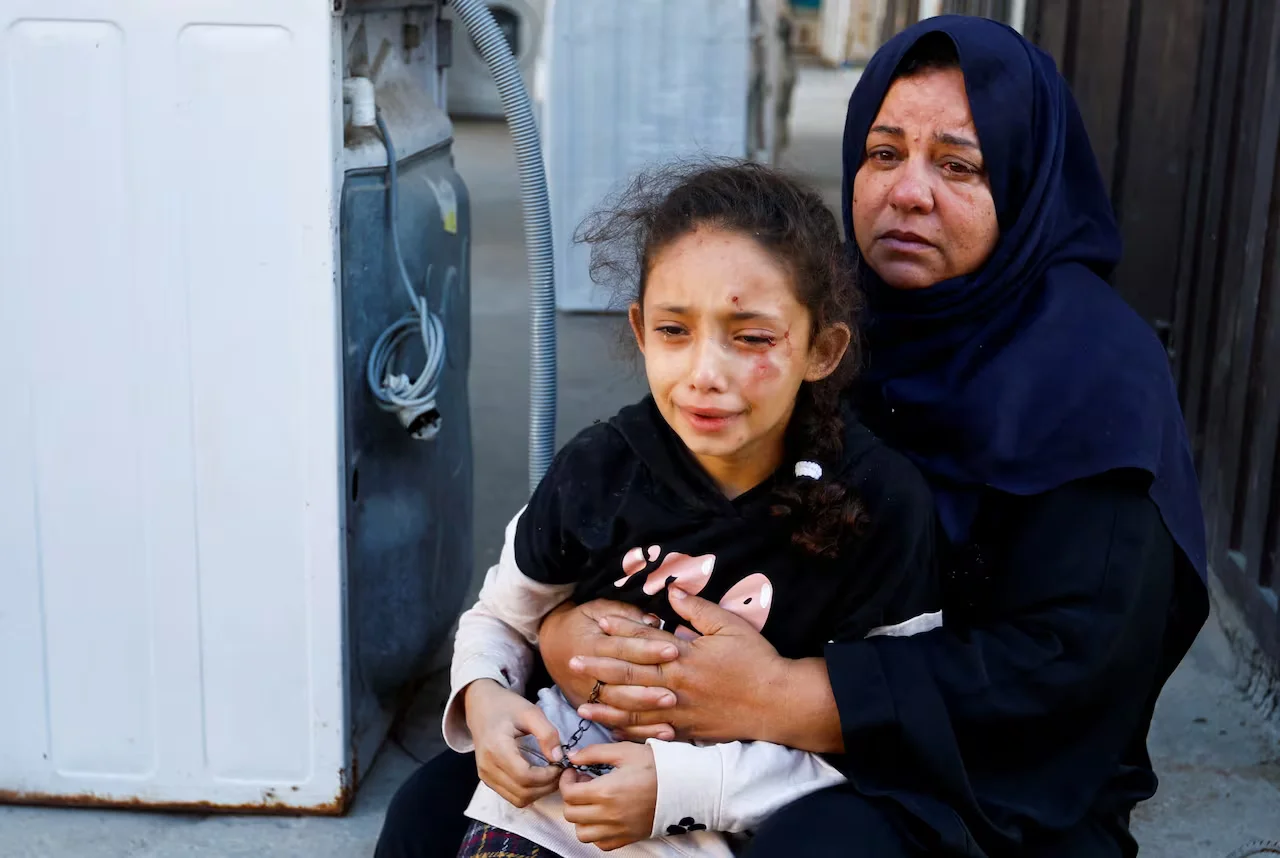As the conflict in the Gaza Strip rages on, a dire humanitarian crisis is unfolding, with reports from the UN’s World Food Programme (WFP) indicating that food supplies are rapidly depleting. With just four or five days’ worth of supplies remaining in local stores, the situation is becoming increasingly critical in this beleaguered region.
According to the WFP, stocks of essential food items are dwindling in warehouses within the Palestinian enclave, particularly in Gaza City in the northern part of the territory. At the shop level, the situation is even more severe, with stores struggling to replenish their shelves.
This food crisis comes amid escalating violence, with over 2,800 Palestinians having lost their lives and up to 10,000 others injured in Israeli attacks on Gaza. In response to these attacks, more than 1,400 Israelis have been killed, and 3,500 others injured in retaliatory actions by Hamas.
Abeer Etefa, the WFP’s Middle East spokeswoman, conveyed the alarming situation during a video-linked press conference from Cairo to reporters at the UN in Geneva. She stated, “The situation in Gaza is getting worse by the minute: the humanitarian situation but also, of course, the food security situation.”

Etefa emphasized the gravity of the situation, explaining, “The current stocks of essential food commodities are sufficient for only two weeks — and that’s at the wholesalers’ level.” At the retail level, it is far more critical, with only a few days of food supplies left.
The ongoing conflict, with its heavy toll on lives and infrastructure, has not only disrupted the daily lives of Gaza’s residents but has also affected the region’s food supply chain. Security concerns and fuel shortages have led to the closure of all but one of the five flour mills in the Gaza Strip, significantly impacting the availability of bread.
Etefa noted that only five out of the 23 bakeries in Gaza, contracted by the WFP, are still operational. She further revealed, “Our food supplies within Gaza are running really short.”
Despite the severity of the food crisis, the WFP reported that there has been no looting of its warehouses, though the remaining supplies are exceptionally limited.
The conflict, which began when Gaza-based Hamas fighters broke through Israel’s heavily fortified border on October 7, has resulted in a large number of civilian casualties. Israel has responded with extensive air strikes on Hamas-controlled Gaza and has deployed tens of thousands of troops to the border in preparation for a potential ground offensive.
In an attempt to clear the area of civilians before a possible urban ground assault, Israel has called for residents in northern Gaza to relocate to the south.
As the conflict escalates, the people of Gaza are left grappling with not only the devastating loss of life but also a dwindling supply of essential resources, raising concerns about the well-being of the region’s residents.




